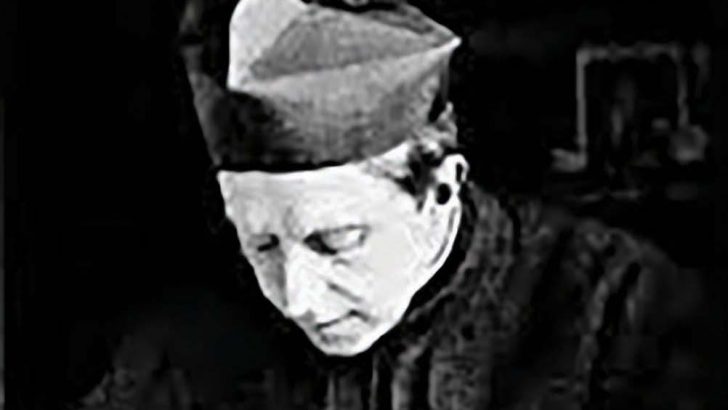Lord of the World, a novel
by Robert Hugh Benson (Ave Maria Press, Notre Dame, $15.95/£10.99)
In January 2015 during an in-flight interview from Manila to Rome, Pope Francis referred to the ‘ideological colonisation’ of international family-planning agencies and national governments that impose population control as a condition of development aid.
The reporter asked what he meant by the term. He referred then to Lord of the World and suggested that they read it.
Robert Hugh Benson, who came of a socially-prominent and highly-literate family, was the son of an Anglican Archbishop of Canterbury, and one of the most notable converts to the English Catholic Church in the decade before the Great War. A prolific writer, he was then a widely-read, even ‘popular’ novelist. Now he is hardly read at all: the shelves of his books in the Central Catholic Library in Dublin have been rarely borrowed since the 1970s. But there has recently been a revival of interest in the man and his writings, with several editions of this book alone in print.
Important
This is now seen as one of the most interesting and important of his novels. First published in 1907 and re-issued in 2016, Mr Hugh Benson imagines the world many years after his own time as crafted by the unstoppable progress of science and technology.
He sets his novel in the year 2000. It was remarkable in its prescience. It describes a European Union at war with an Eastern Empire, weapons of mass destruction, mutual annihilation pacts between empires and euthanasia centres to put an end to any discomfort or sufferings. It was the first of a number of dystopian novels of the twentieth century which described a frightening future world, notably some by his contemporary H. G. Wells, and later Aldous Huxley’s Brave New World (1932) and George Orwell’s 1984 (1949).
The two main characters in Mr Benson’s novel are Julian Felsenburgh and Fr Percy Franklin. The former is a mysterious megalomaniac with a skill to mesmerise people with his oratory. Eventually he becomes president of Western Europe and is universally feted for successfully concluding a peace agreement with the Empire of the East. He ushers in a new order. Known as humanitarianism, it is a new religion without God.
Order
Everyone is required by law to adhere to the order without any deviation. The Catholic Church and its members are quickly seen to be a threat to this uniformity. Catholics are hunted down and when they profess to believe in God they are summarily executed. Mr Felsenburgh and his cohorts complete the extermination of Catholicism by wiping out Vatican City and with it Rome, as well as Nazareth and much of the Holy Land.
Fr Franklin is introduced as a priest ministering at Westminster Cathedral in London. He is also engaged in providing reports to the Vatican on the state of the Church in England. He records the transformation of society under the new order, the creeping control by the state of every aspect of human activity and the disaffection of many priests – some of whom became the ceremonial organisers of the mass demonstrations of the new order.
Eventually Fr Franklin is summoned to Rome, where he is elected to the college of cardinals. He becomes an adviser to the Pope, whom he later succeeds. As Pope he relocates to Nazareth, where he is annihilated with the remnants of his Church.
There is a subplot. Initially the prime minister of England and his wife are devotees of the new order. However, its denouement leaves them both totally disillusioned. With the prime minister voicing his regrets and struggling with his conscience, his wife checks in to one of the ‘euthanasia hospitals’ which had been established in the brave new world created by Mr Felsenburgh and kills herself.
Speculate
It is interesting to speculate what Pope Francis considered journalists could learn by reading Mr Hugh Benson’s apocalyptic novel.
Perhaps it was that the ideological ordering of society desired by many ‘progressives’ could lead to a secular state with little room for ‘pluralism’ and the suppressions of an individual’s basic freedoms such as freedom of conscience, freedom of speech and freedom of religion.


 Robert Hugh Benson at work
Robert Hugh Benson at work 